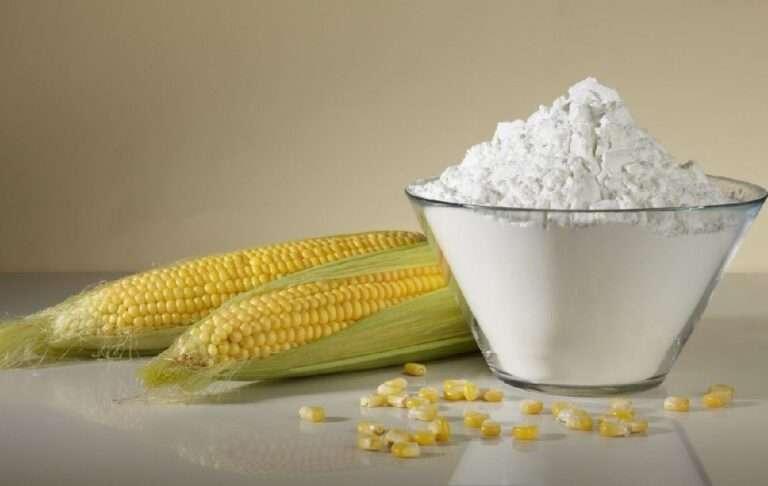Why Food Brands Rely on Maize Starch Manufacturers for Quality Ingredients

Introduction
Understanding Maize Starch
Maize starch, also known as corn starch, is a fine, white powder derived from the endosperm of corn kernels. It is primarily made up of two carbohydrates: amylose and amylopectin. This unique composition gives maize starch its thickening, stabilizing, and binding properties, making it indispensable in food production.
In its native form, maize starch acts as a natural thickener, while modified forms—created through physical, enzymatic, or chemical treatment—are designed to meet specific industrial needs such as freeze-thaw stability or high-temperature tolerance.
The Role of Maize Starch in Food Manufacturing
Food brands rely on maize starch not just as an additive but as a critical component of product formulation. Its ability to modify texture, stabilize emulsions, and enhance mouthfeel allows manufacturers to create products that consumers find enjoyable and appealing.
Key roles of maize starch in foods:
- Thickening Agent – Used in soups, sauces, gravies, and desserts for consistency.
- Stabilizer – Ensures dairy products like yogurt and ice cream don’t separate.
- Binder – Holds ingredients together in snacks, processed meats, and baked goods.
- Texture Enhancer – Improves softness and chewiness in bread and pastries.
- Sweetener Source – Broken down into glucose or fructose syrups for beverages and candies.
By delivering these functions, maize starch supports the sensory qualities that influence consumer preference
Applications of Maize Starch in Different Food Categories
1. Baked Goods
In bread, cakes, and biscuits, maize starch improves texture, increases volume, and provides softness. It also enhances shelf life by reducing staling.
2. Dairy Products
In yogurts and custards, maize starch stabilizes proteins, giving a creamy and smooth consistency. It also prevents syneresis (water separation).
3. Confectionery
Candies, jellies, and gummies rely on maize starch as a gelling agent and to control crystallization of sugars.
4. Beverages
Maize starch hydrolysates, such as glucose syrup, act as sweeteners and provide body to soft drinks, energy drinks, and flavored water.
5. Convenience Foods
Ready-to-eat meals, soups, and instant noodles use maize starch for viscosity, stability, and palatability.
By adapting to so many product categories, maize starch has become an irreplaceable asset for food brands worldwide.
Why Consistency Matters for Food Brands
In the food industry, consistency is everything. Consumers expect their favorite products to taste and feel the same every time they buy them. Maize starch manufacturers provide the backbone for this consistency by ensuring uniformity in starch quality.
Ways manufacturers ensure consistency:
- Quality raw material sourcing from reliable corn producers.
- Advanced processing techniques to control starch granule size and composition.
- Strict testing for purity, viscosity, and performance.
- Customized solutions for specific client needs.
Without these practices, food brands would struggle to deliver standardized products across markets.
The Role of Innovation in Maize Starch Applications
Food trends are constantly evolving, with growing demand for healthier, clean-label, and sustainable products. Maize starch manufacturers are at the forefront of this innovation by developing modified starches that:
- Are gluten-free, catering to consumers with dietary restrictions.
- Provide fat-replacement properties for low-calorie foods.
- Improve freeze-thaw stability for frozen meals and desserts.
- Support clean-label claims by offering minimally processed options.
This innovation allows food brands to stay relevant in competitive markets while meeting consumer expectations.
Non-Food Applications That Indirectly Benefit Food Brands
Interestingly, maize starch also has non-food applications—in packaging, pharmaceuticals, and textiles—that indirectly support food brands. For example, starch-based biodegradable packaging offers eco-friendly alternatives to plastic, helping food brands reduce their carbon footprint.
Thus, maize starch manufacturers play a broader role in shaping the sustainability strategies of food companies.
Challenges Faced by Maize Starch Manufacturers
Even with its wide acceptance, maize starch production is not without challenges.
- Fluctuating corn supply due to climate change and agricultural limitations.
- Rising demand for non-GMO starches, requiring careful sourcing.
- Global competition, which pushes manufacturers to balance cost with quality.
- Environmental pressures to adopt greener technologies in production.
Manufacturers who successfully overcome these challenges become the preferred partners for global food brands.
The Economic Importance of Maize Starch
Maize starch is not only a functional ingredient but also an economically important one. Its affordability compared to alternatives makes it ideal for large-scale food production. By reducing production costs while maintaining product quality, maize starch helps brands stay profitable.
In developing economies, maize starch production also generates employment and strengthens agricultural supply chains, creating a win-win for both industries and communities.
The Future of Maize Starch in the Food Industry
Looking ahead, the role of maize starch in food manufacturing will only expand. The global demand for convenience foods, healthier alternatives, and eco-friendly solutions ensures that maize starch manufacturers will remain vital players.
With innovations in biotechnology and processing, future maize starches may offer even more functionality—such as increased nutritional benefits or enhanced sustainability.
Why Food Brands Trust SPAC as Maize Starch Manufacturers
SPAC’s Edge in the Maize Starch Industry
Unlike generic suppliers, SPAC focuses on innovation, customization, and sustainability. As one of the leading maize starch manufacturers, SPAC provides tailored starch solutions for bakery, dairy, beverages, and processed foods. Their commitment to eco-friendly practices and non-GMO sourcing further strengthens their position as an industry leader.
Partnering with SPAC for Reliable Maize Starch Supply
For food brands seeking to maintain product quality and consistency, SPAC stands out as a strategic partner. With their expertise as maize starch manufacturers, SPAC not only delivers high-performing ingredients but also helps brands achieve long-term growth through innovation and sustainability.
Final thoughts
From thickening soups to sweetening beverages, maize starch is the silent hero of the food industry. Its versatility, affordability, and reliability make it an indispensable ingredient in countless products. At the heart of this value chain are maize starch manufacturers who ensure quality, consistency, and innovation.
SPAC, as a leader among maize starch manufacturers, exemplifies these qualities. By partnering with them, food brands can rely on trusted, sustainable, and innovative starch solutions—ensuring their products delight consumers every time.

